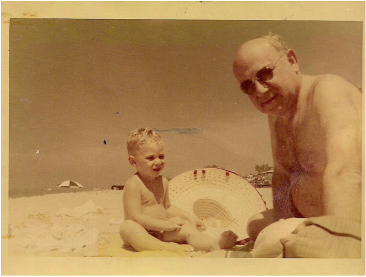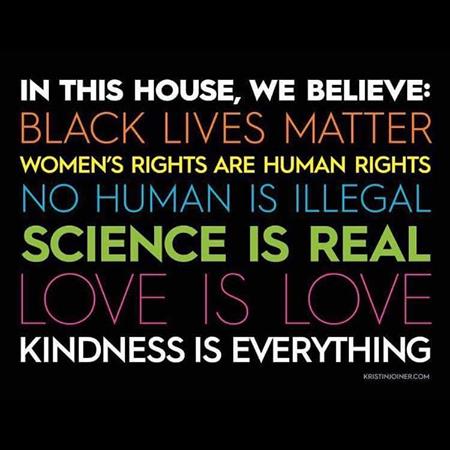What you — yes, you — can do to save America from tyrannyTimothy Snyder, a Yale history professor and historian of Eastern Europe, originally published this on Facebook. He is the author of "Black Earth: The Holocaust as History and Warning." Twitter: @TimothyDSnyder Americans are no wiser than the Europeans who saw democracy yield to fascism, Nazism or communism. Our one advantage is that we might learn from their experience. Now is a good time to do so. Here are 20 lessons from across the fearful 20th century, adapted to the circumstances of today. 1. Do not obey in advance. Much of the power of authoritarianism is freely given. In times like these, individuals think ahead about what a more repressive government will want, and then start to do it without being asked. You've already done this, haven't you? Stop. Anticipatory obedience teaches authorities what is possible and accelerates unfreedom. 2. Defend an institution. Follow the courts or the media, or a court or a newspaper. Do not speak of "our institutions" unless you are making them yours by acting on their behalf. Institutions don't protect themselves. They go down like dominoes unless each is defended from the beginning. 3. Recall professional ethics. When the leaders of state set a negative example, professional commitments to just practice become much more important. It is hard to break a rule-of-law state without lawyers, and it is hard to have show trials without judges. 4. When listening to politicians, distinguish certain words. Look out for the expansive use of "terrorism" and "extremism." Be alive to the fatal notions of "exception" and "emergency." Be angry about the treacherous use of patriotic vocabulary. 5. Be calm when the unthinkable arrives. When the terrorist attack comes, remember that all authoritarians at all times either await or plan such events in order to consolidate power. Think of the Reichstag fire. The sudden disaster that requires the end of the balance of power, the end of opposition parties, and so on, is the oldest trick in the Hitlerian book. Don't fall for it. 6. Be kind to our language. Avoid pronouncing the phrases everyone else does. Think up your own way of speaking, even if only to convey that thing you think everyone is saying. (Don't use the internet before bed. Charge your gadgets away from your bedroom, and read.) What to read? Perhaps "The Power of the Powerless" by Václav Havel, 1984 by George Orwell, The Captive Mind by Czeslaw Milosz, The Rebel by Albert Camus, The Origins of Totalitarianism by Hannah Arendt, or Nothing is True and Everything is Possible by Peter Pomerantsev. 7. Stand out. Someone has to. It is easy, in words and deeds, to follow along. It can feel strange to do or say something different. But without that unease, there is no freedom. And the moment you set an example, the spell of the status quo is broken, and others will follow. 8. Believe in truth. To abandon facts is to abandon freedom. If nothing is true, then no one can criticize power, because there is no basis upon which to do so. If nothing is true, then all is spectacle. The biggest wallet pays for the most blinding lights. 9. Investigate. Figure things out for yourself. Spend more time with long articles. Subsidize investigative journalism by subscribing to print media. Realize that some of what is on your screen is there to harm you. Bookmark PropOrNot or other sites that investigate foreign propaganda pushes. 10. Practice corporeal politics. Power wants your body softening in your chair and your emotions dissipating on the screen. Get outside. Put your body in unfamiliar places with unfamiliar people. Make new friends and march with them. 11. Make eye contact and small talk. This is not just polite. It is a way to stay in touch with your surroundings, break down unnecessary social barriers, and come to understand whom you should and should not trust. If we enter a culture of denunciation, you will want to know the psychological landscape of your daily life. 12. Take responsibility for the face of the world. Notice the swastikas and the other signs of hate. Do not look away and do not get used to them. Remove them yourself and set an example for others to do so. 13. Hinder the one-party state. The parties that took over states were once something else. They exploited a historical moment to make political life impossible for their rivals. Vote in local and state elections while you can. 14. Give regularly to good causes, if you can. Pick a charity and set up autopay. Then you will know that you have made a free choice that is supporting civil society helping others doing something good. 15. Establish a private life. Nastier rulers will use what they know about you to push you around. Scrub your computer of malware. Remember that email is skywriting. Consider using alternative forms of the internet, or simply using it less. Have personal exchanges in person. For the same reason, resolve any legal trouble. Authoritarianism works as a blackmail state, looking for the hook on which to hang you. Try not to have too many hooks. 16. Learn from others in other countries. Keep up your friendships abroad, or make new friends abroad. The present difficulties here are an element of a general trend. And no country is going to find a solution by itself. Make sure you and your family have passports. 17. Watch out for the paramilitaries. When the men with guns who have always claimed to be against the system start wearing uniforms and marching around with torches and pictures of a Leader, the end is nigh. When the pro-Leader paramilitary and the official police and military intermingle, the game is over. 18. Be reflective if you must be armed. If you carry a weapon in public service, God bless you and keep you. But know that evils of the past involved policemen and soldiers finding themselves, one day, doing irregular things. Be ready to say no. (If you do not know what this means, contact the United States Holocaust Memorial Museum and ask about training in professional ethics.) 19. Be as courageous as you can. If none of us is prepared to die for freedom, then all of us will die in unfreedom. 20. Be a patriot. The incoming president is not. Set a good example of what America means for the generations to come. They will need it.
0 Comments
 My maternal grandfather and I share the same birthday, February 16. When I think of Grandpa, I realize that my awareness of skin color, and the understanding that people may be treated differently because of it, first began on a perfect baseball afternoon in May of 1955. He had taken me to a baseball game at Sportsman’s Park to watch the St. Louis Cardinals host the Brooklyn Dodgers. I recall him asking me to look into the right field bleachers to see if I observed anything. Of course, I did not. I was five years old and overwhelmed by the stadium itself. Grandpa went on to explain that Jackie Robinson was playing that day, and whenever the Dodgers were in town the right field bleachers were filled with “colored people”. This being a “tradition” remaining from when the stadium had segregated seating just a few years previously. Before that afternoon, I cannot recall having any awareness of what we refer to as “race “, or that people with skin color different than mine existed. That was the very early start of my journey. People, who conscientiously work to understand prejudice around skin color, gender, ability, religion, and so much more, often refer of their journey to understanding. I have put this journal together so that you, at whatever point you are on your journey, will spend some time each week for the next year reflecting and writing based on the questions you will find. Many questions you will be able to answer for yourself. Yet for some will need to search and develop new ideas and attitudes To work through this journal, some of you may need to find an ally, or explore the Resources section to help you develop an understanding. You may want to start a group discussion using this journal as a guide. I have purposely not provided answers, as each of you will study and learn at your own rate. Moreover, I am a big believer in the impact of learning through discovery You will find many questions white people often never consider. That is why they need to be asked! Sixty-one years ago, I started my journey to understanding my whiteness and privilege and I am still on it. I doubt I will ever get all the way there. We are all in different places. The important thing is that you have started. Welcome to your journey! We welcome you to our website and invite you to visit often for insight and informative information about What It Means To Be White And Privileged. |
Tom SchweizerWelcome to my Blog. If you have some appropriate thoughts or an article you would like to share, please contact me at [email protected] Archives
April 2020
Categories |

 RSS Feed
RSS Feed